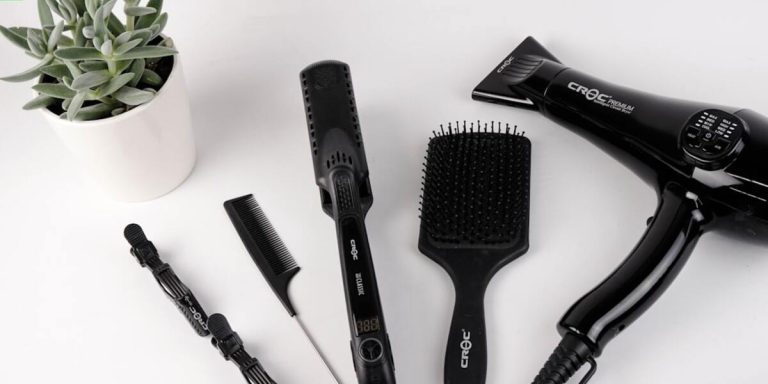Scalp Itch and Hair Loss Treatment: A Complete Guide to Understanding and Combating the Problem
Hair loss can be a distressing concept for many, but when coupled with scalp itch, it transcends from simply disconcerting to extremely uncomfortable and challenging. In the realm of “Scalp Itch and Hair Loss Treatment”, understanding these two interrelated conditions is critical as it could help in identifying appropriate remedies and prevent further deterioration.
This blog post aims at unpacking the intricate connection between hair loss and intense scalp itching by providing comprehensive information on causes, symptoms & preventative measures. By equipping you with this knowledge, we hope that those affected will feel empowered to take charge of their condition while navigating through potential treatment options available today.
Did you know?
Did you know that an itchy scalp can be a precursor to hair loss? Research has shown there’s a solid connection between itching, inflammation and thinning of hair.
Understanding Scalp Itch and Hair Loss: Causes and Correlation
Experiencing an itchy scalp along with hair loss can be alarming. While these two issues are often seen separately, when occurring simultaneously they can indicate a particular set of medical conditions which should not be ignored. Understanding the intricate link between them is key to finding effective treatments and preventing further decline in your hair health.
Various factors contribute to both itching scalp and hair loss, some more severe than others. Dermatological disorders such as seborrheic dermatitis or psoriasis frequently result in an irritated or inflamed scalp causing itchiness and possible bald patches over time if left untreated. The presence of parasites like lice may also lead to intense scratching that disrupts your follicle function leading to temporary shedding.
Furthermore, repetitive actions driven by stress-related disorders like trichotillomania where individuals compulsively pull out their own hairs exacerbate this condition dramatically.
In contrast, environmental factors including excessive exposure heat styling tools or harsh chemical laden products irritate the skin resulting in inflammation thus paving way for considerable thinning without timely intervention.
Identifying Common Triggers for Scalp Irritation
Identifying the common triggers for scalp irritation is the first step in understanding and effectively treating hair loss. Various factors can contribute to this condition, including physical stressors, dietary influences, underlying health conditions, and certain personal care products.
Physical Stress: Physical stimuli such as excessive scratching or aggressive brushing techniques can significantly irritate your scalp leading to itching and subsequent hair fall. This effect is further intensified when combined with environmental elements like harsh wind or extreme temperatures which make your skin more prone to dryness.
Dietary Influences: Consuming an unbalanced diet lacking essential nutrients plays a pivotal role in overall skin health – including that of your scalp’s. Deficiencies primarily related to vitamin B6/B12, omega-3 fatty acids or zinc often manifest as itchiness paired with alarming rates of shedding hair strands across time.
Underlying Health Conditions: A variety of medical issues might also be contributing towards persistent scalp discomfort followed by thinning locks — not least among these are dermatological concerns like psoriasis or seborrheic dermatitis alongside systemic illnesses encompassing thyroid disorders plus diabetes among others.
Hair Care Products: Regular use of unsuitable shampoos/conditioners infested with harmful chemicals may induce significant inflammation setting off itchy sensations paving way for eventual bald spots over prolonged periods without correct intervention strategies put into place proactively from start!
Exploring the Connection Between Itchy Scalp and Hair Thinning
An itchy scalp can be more than just a daily nuisance. It can be an indicator of potential hair thinning or loss, creating deeper concerns about personal appearance and self-esteem. There is indeed a direct connection between an itchy scalp and hair thinning that may not always occur to us.
Firstly, understanding the cause behind your scratchy situation marks as paramount importance in treating both conditions effectively. The itching could stem from dandruff caused by dry skin or severe cases like seborrheic dermatitis causing excessive flaking and itchiness leading to scratching; this over time weakens the follicles resulting in temporary hair shedding.
Another prevalent cause linking the two events is psoriasis – A condition characterized by red patches covered with silvery scales on defined areas of one’s body including scalp often accompanied by extreme discomforting itch inducing further damage through persistent scratching damaging roots provoking significant amounts of follicle fallout.
Association also lies with fungal infections such as tinea capitis – essentially ringworm for your scalp initiating inflammation which destroys your shafts at their root level thus promoting noticeable levels of reduced volume along different parts throughout head.
It’s crucial then, when dealing with ‘scalp itch and hair loss treatment’, you target both symptoms together since they intimately intertwine within each other making progression towards recovery considerably smoother compared against separate attempts made addressing singular problems individually hence why dual-action treatments are widely recommended amongst experts today for achieving desired results quicker without subjecting oneself under unnecessary strain physically nor mentally.
Innovative Treatments for Combating Hair Loss Due to Scalp Conditions
The innovative strides in hair loss treatments are indeed a beacon of hope for individuals grappling with scalp-induced alopecia. In 2023, science and technology have merged to foster novel remedies designed precisely for tackling unwelcome conditions like scalp itch that often precede or coincide with hair thinning and balding.
A topically applied medication enriched with natural anti-inflammatory ingredients is a breakthrough treatment in the field. It soothes an itchy, inflamed scalp and inhibits DHT – the hormone often responsible for patterned baldness in men and women.
This therapeutic solution mitigates inflammation, fights fungal infections, normalizes oil production on the skin’s surface, and blocks DHT effects. It provides double-action response: relieving head itchiness and promoting healthier follicles primed for regrowth.
In conjunction with topical applications, advances encompass low-level laser therapy (LLLT) too which has emerged as an effective non-invasive modality against various forms of Alopecia areata including those triggered by irritated scalps. The strategic use of light energy stimulates cellular activity at the roots level boosting circulation thus nurturing weakened strands back into vitality – all without any adverse side-effects or downtime linked habitually to surgical interventions.
Breakthrough Topical Applications for Scalp Health
When it comes to treating scalp itch and hair loss, researchers have made significant advancements in the development of topical applications that specifically target these issues. These innovative solutions are making a profound impact on those dealing with distressing conditions such as dandruff, psoriasis or seborrheic dermatitis which all contribute towards deteriorating scalp health leading to hair fall.
One breakthrough product is a steroidal foam application formulated with salicylic acid and hydrocortisone. This unique blend not only alleviates itching but also reduces inflammation – addressing two prominent symptoms associated with several common scalp disorders. The foam format ensures deeper penetration into the skin surface thereby delivering targeted relief.
Another promising solution lies within nanotechnology-enhanced serums infusing CBD oil—a potent anti-inflammatory agent—alongside other natural ingredients like tea tree oil known for its antibacterial properties. This serum works by soothing irritated scalps while encouraging healthy growth of new strands resulting in thicker, fuller locks over time.
For individuals experiencing severe cases of flaky scalps caused by dryness or certain medical treatments; hydrating lotions packed full of hyaluronic acid serve as an excellent moisturizer ensuring optimal environment for sustained follicle growth thus combating thinning issues effectively.
The Role of Nutrition and Supplements in Treating Itchy Scalp-Induced Hair Loss
It’s no secret that nutrition and supplements play a pivotal role in maintaining hair health. When dealing with itchy scalp-induced hair loss, incorporating specific nutrients into your diet can be an effective course of action for treatment.
Omega-3 fatty acids, found primarily in fish like salmon or herring, stand as powerhouses to combat inflammation – a primary cause behind the itching. They work by moisturizing the scalp from within and reducing dryness which causes intense itchiness leading to hair fall.
Biotin is another supplement clinically proven to tackle this concern. Not only does Biotin aid in improving your body’s keratin infrastructure – a key protein making up your tresses but also soothes inflamed skin conditions on the scalp thus promoting overall regeneration process.
Vitamin D deficiency has been linked directly with alopecia areata—an autoimmune condition causing severe hair loss—and other non-scarring forms of balding phenomena often triggered by inflammatory disorders. Adding vitamin D rich food like orange juice, cheese or stepping out daily under morning sunlight might well serve beneficial purposes against such ailments occurring due to malnutrition.
In addition to these dietary changes oftentimes medicated shampoos containing essential oils provide relief when suffering from common issues prevailing around dandruff-triggered irritation leading towards eventual thinning down of hairs.
Maintaining a Healthy Scalp: Preventive Measures and Daily Routines
Maintaining a healthy scalp is absolutely crucial to ward off issues such as hair loss and persistent itchiness. Many of us underestimate the importance of regular scalp maintenance, often relegating it to an occasional afterthought when we encounter discomfort or visible signs of distress. However, 2023’s focus on preventive health care applies equally well to the realm of hair health too.
For starters, investing time in developing daily routines featuring gentle yet effective treatments can pay long-term dividends for your overall scalp health and wellness. Incorporate natural remedies like tea tree oil into your regime that have proven antimicrobial properties which can help alleviate irritating symptoms related with dandruff and other skin-related conditions affecting the scalp.
Establishing an Effective Scalp Care Regimen
Establishing an effective scalp care regimen is crucial in the journey towards combating hair loss and reducing scalp itch. It plays a significant role as preventive measures and daily routines for maintaining a healthy scalp.
First on your checklist should be choosing suitable hair products. Opt for shampoos, conditioners, or serums that are specifically designed to promote hair growth and alleviate itchiness. These usually contain ingredients like biotin, caffeine, saw palmetto—known catalysts of robust strands—and menthol or peppermint oil that help soothe itchy scalps.
Remember to consider your individual needs when shopping; not all ‘hair growth’ products will work uniformly with every person’s unique chemistry.
Next step in this vital routine involves being conscious of water temperature during washes. Although luxuriating under hot showers can feel therapeutic especially after long days at work—the stark reality remains: high temperatures strip essential oils from our scalps leading to dryness which potentially exacerbates itching and accelerates hair fall out rates significantly. So opt instead for lukewarm baths while ensuring not to over-wash—you do want some natural oils retained!
Diet modification forms another cornerstone element in this regime too! Food rich in vitamins A, C & E alongside omega-3 fatty acids contribute substantially toward nurturing healthier follicles thus promoting retention while curbing shedding cycles notably.
Selecting Gentle, Nourishing Products to Minimize Irritation
Choosing gentle and nourishing hair products is key in minimizing scalp irritation, a common cause for scalp itchiness leading to potential hair fall. Being proactive about your selections can have a profound impact on the overall health of your scalp.
Firstly, avoid harsh shampoos that strip natural oils from your head. These types of products destructively target sebum – an oily substance produced by our bodies to protect skin integrity including the tender skin upon our heads. Instead opt for sulfate-free alternatives which are milder yet effective enough to cleanse without causing unnecessary dryness or inflammation.
Next, look for shampoo and conditioner combinations infused with soothing ingredients like chamomile, tea tree oil or lavender essential oil. Known for their anti-inflammatory characteristics these elements soothe itchy scalps and promote healthier follicles through invigoration of blood circulation at the root level.
Conclusion
In wrapping up, understanding and tackling scalp itch alongside hair loss may seem overwhelming. But with a well-rounded perspective on the root causes and effective treatments available, dealing with these problems can be less daunting. This guide to “scalp itch and hair loss treatment” is designed for just that – to empower you by unraveling the complexities of this common problem.
Does your journey towards healthy hair end here? The answer is an emphatic no! There’s plenty more insightful content waiting for you here – tailored specifically for anyone grappling with different types of ‘Hair Loss Treatments’.
So keep browsing through our website, continue learning, stay positive; because when it comes to restoring your crowning glory – every strand matters!







